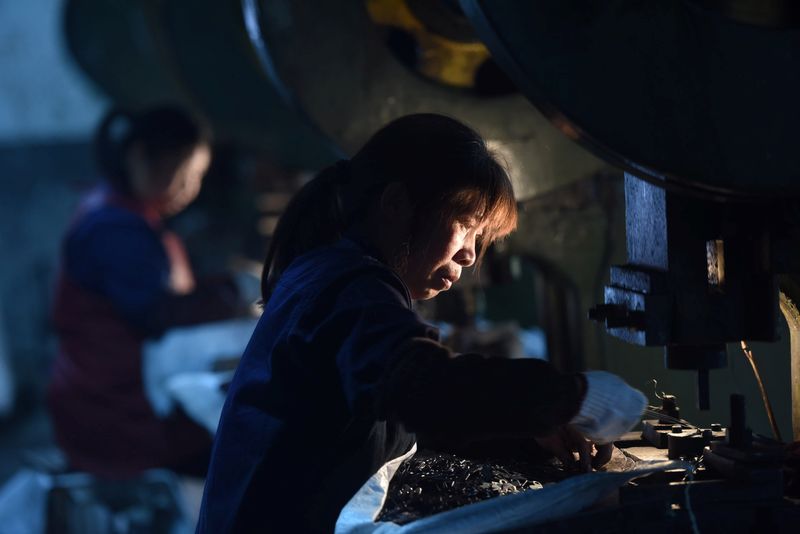BEIJING (Reuters) - China's factory activity swung to contraction in July, a private sector survey showed on Tuesday, with supply, demand and export orders all deteriorating as firms blamed sluggish market conditions at home and abroad.
The Caixin/S&P Global manufacturing purchasing managers' index (PMI) fell to 49.2 in July from 50.5 in June, missing analysts' forecasts of 50.3 and marking the first decline in activity since April. The 50-point index mark separates growth from contraction.
The data was in line with the government's official PMI on Monday, raising challenges for policymakers seeking to revive momentum in China's post-COVID recovery amid high youth unemployment, mounting local debt pressure and weak demand.
The Caixin survey showed manufacturing output shrank for the first time in six months while new orders saw the quickest reduction since December. New orders remained unchanged at makers of investment goods, but fell at producers of consumer and intermediate goods.
New export orders contracted at the steepest pace since September 2022 amid weakening global demand.
Employment across the manufacturing sector fell for the fifth straight month in July, although the pace of job shedding eased from June. Lower payroll numbers were attributed to reduced sales and cost-cutting by factory owners.
After five months of improvement, supplier performance worsened slightly. Firms said a lack of stock at some vendors had impacted lead times as they adopted leaner inventory policies in response to softer demand.
Competitive market conditions and price negotiations with clients led to a further reduction in Chinese factory gate prices at the start of the third quarter.
Manufacturers overall remained optimistic regarding the 12-month outlook for output, but the degree of positive sentiment was below the long-run series average.
Top policymakers at a Politburo meeting pledged to step up support for the economy and strengthen counter-cyclical adjustments in the second half of this year.
But Wang Zhe, senior economist at Caixin Insight Group, said current monetary settings would only have a limited effect on boosting supply. "An expansionary fiscal policy that targets demand should be prioritised."
The country's top economic planner released measures on boosting consumption and private investment last month, with many measures aimed at improving the supply of goods.

While markets and investors are expecting more stimulus to spur demand, the housing minister recently called for more property easing measures.
Some of the biggest cities including Beijing and Shenzhen said over the weekend they would implement measures to better meet the needs of homebuyers.